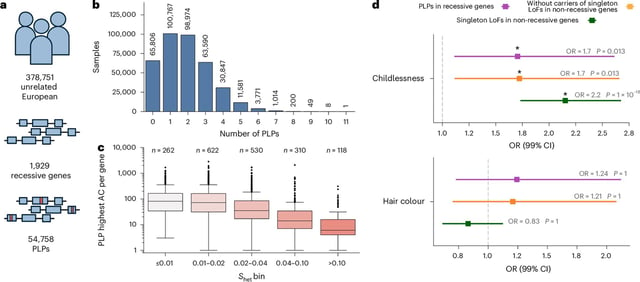Overview
- An analysis of over 300,000 UK Biobank participants found that carriers of heterozygous recessive pathogenic variants experience modest but significant health, cognitive, and reproductive disadvantages.
- Carriers of recessive genes linked to intellectual disability are particularly affected, showing reduced educational attainment and higher rates of childlessness.
- The findings challenge the longstanding belief that carriers of recessive mutations are phenotypically neutral, prompting a reevaluation of genetic paradigms in textbooks and counseling practices.
- Researchers suggest that natural and sexual selection continue to act on these genetic variants, indicating that human evolution is ongoing in modern populations.
- On average, individuals carry about two pathogenic variants across nearly 2,000 recessive genes, with subtle effects detectable at the population level.

